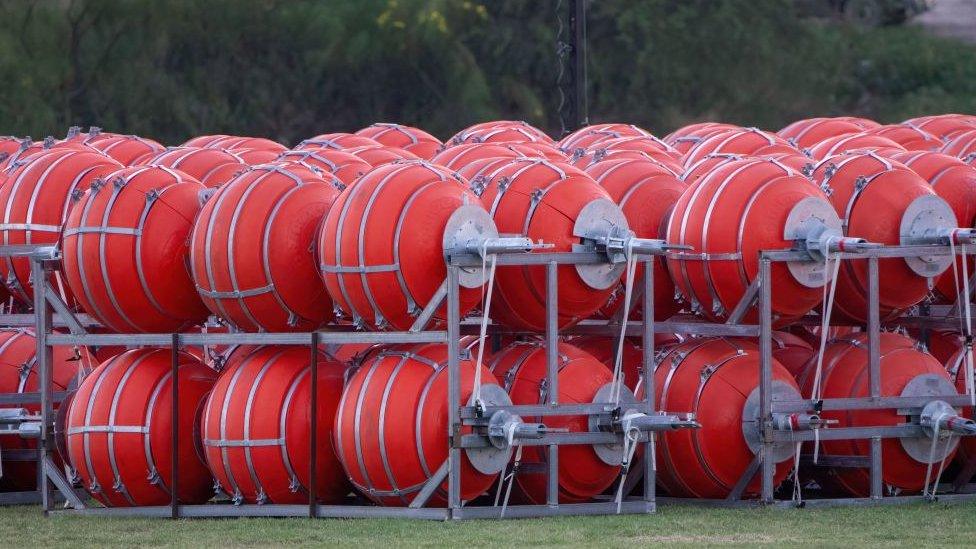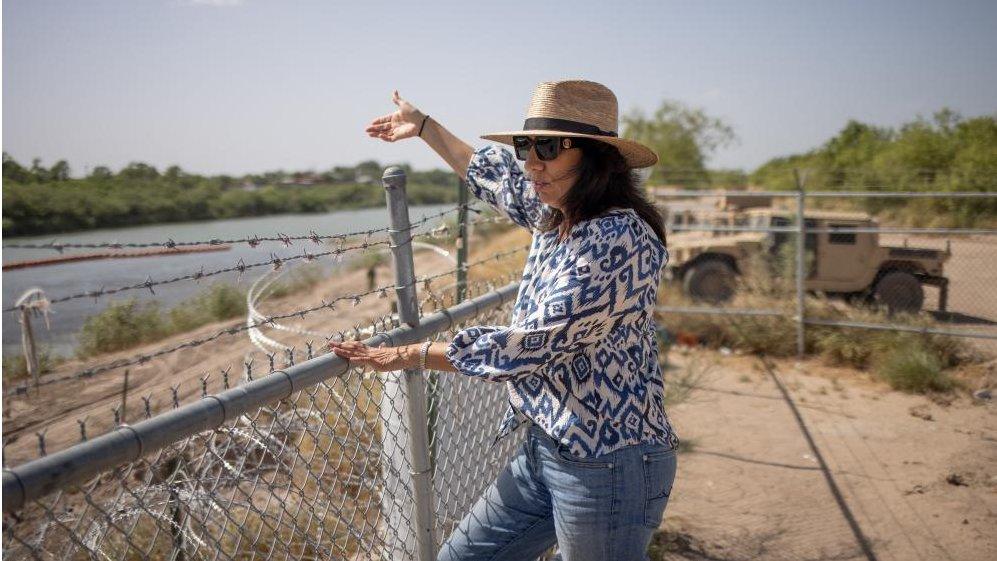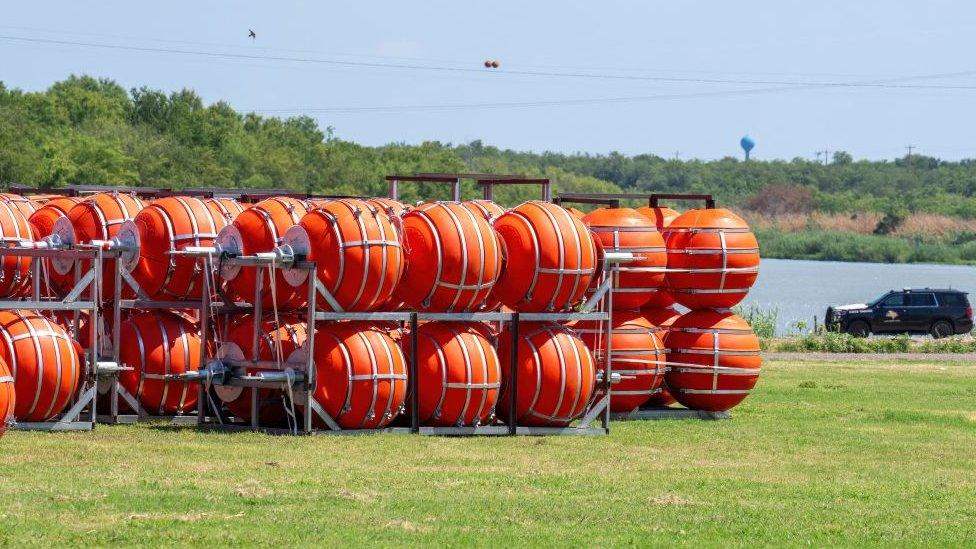Texas wins appeal to keep border barrier, for now
- Published

The Eagle Pass area has seen about 270,000 migrant detentions this fiscal year
An appeals court is allowing Texas to temporarily keep its floating buoys on the Rio Grande River as the legal battle ricochets through the courts.
The buoys were placed in July to stop migrants from crossing into the US from Mexico.
A federal judge ruled on Wednesday that the barriers were a threat to safety and diplomatic ties, asking that they be moved by 15 September.
But Texas filed an immediate legal challenge, which has been upheld.
On Thursday night, the 5th US Circuit Court of Appeals issued a temporary stay on the lower court ruling while it looks at the case.
Texas argued its safety and sovereignty would be harmed if the buoys were to be moved.
Watch: Texas deploys buoys on Rio Grande to deter migrants
The Department of Justice sued Texas over the water barriers, citing humanitarian and environmental concerns.
Governor Greg Abbott had rejected the lower court ruling on Wednesday, vowing to fight it in court.
In Wednesday's ruling, US District Judge David Ezra, an appointee of former President Ronald Reagan, questioned whether the buoys had even deterred migrants from crossing.
He wrote there was no "credible evidence that the buoy barrier as installed has significantly curtailed illegal immigration".
Judge Ezra also raised concerns that Texas' actions could harm relations between the US and Mexico.
On Wednesday, US Associate Attorney General Vanita Gupta said the Biden administration welcomed that decision.
Texas began installing the buoys in July, saying they were expected to eventually cover about 1,000ft (305m) of the Rio Grande River.
The floating barrier was placed in the Eagle Pass area, which has seen about 270,000 migrant detentions this fiscal year.
The Biden administration filed its lawsuit against Texas over the buoys in late July, arguing that by installing the barrier the state had violated federal laws governing navigable waterways.
The floating barrier is just one part of what is known as Operation Lone Star - a series of projects aimed at curbing migration into Texas from Mexico.
As part of the initiative, Texas has also installed a 60-mile razor wire fence, which was criticised by Mexican officials as violating international law.
Related topics
- Published13 July 2023

- Published3 August 2023

- Published24 July 2023
